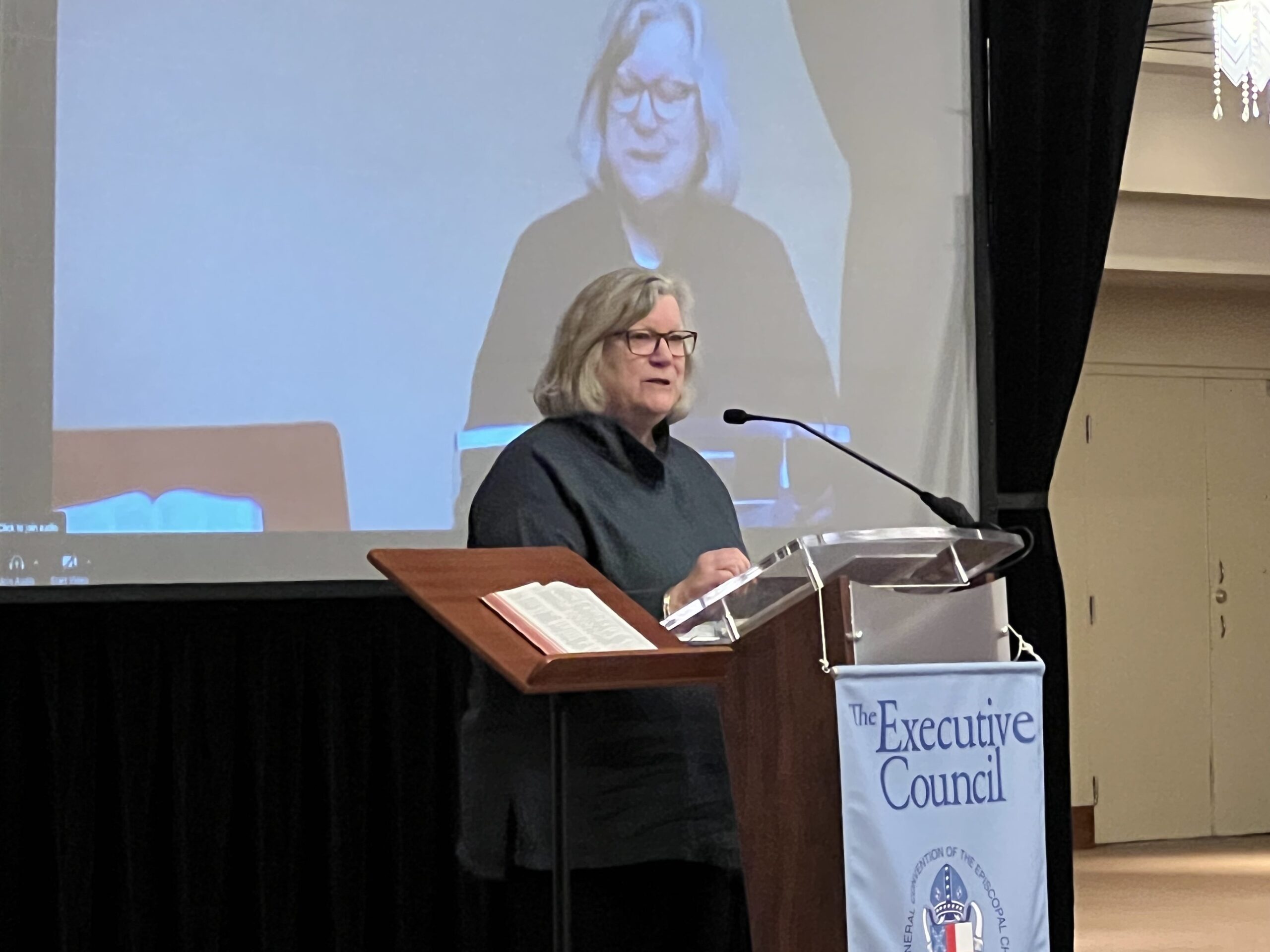This sermon was delivered by President Jennings during the meeting of Executive Council in San Juan, Puerto Rico on April 20, 2022:
In the name of the Risen Lord. Amen.
Perhaps of all the stories in the Gospel, the Road to Emmaus is the one I have the easiest time imagining myself in.
Two disciples—Cleopas and, let’s say, as some scholars do, that it was his wife, Mary, who had stood at the foot of the cross—are leaving Jerusalem afraid and confused, with everything that they thought they understood about the world in tatters. They are not just random bystanders—they are disciples who had known Jesus, traveled with him, and loved him. You can imagine that Mary, in particular, has been through hell; she has watched with her own eyes her teacher being brutally executed by the Roman authorities.
And so now, Cleopas and Mary are going to a town mentioned nowhere else in scripture, trying to make sense out of their lives. Frederick Buechner wrote that Emmaus was no place in particular, except that it was “some seven miles distant from a place that had become unbearable.” (Frederick Buechner, The Magnificent Defeat (Harper, 1985), 85).
I know this feeling deep in my bones. The first few days after our daughter, Lee, died, we were in shock, nothing seemed quite real, and akin to Cleopas and Mary, the situation was unbearable. Do you remember the poem by Emily Dickinson that begins “After great pain, a formal feeling comes?” That’s what I felt like, and that’s what I imagine Cleopas and Mary felt like too. Devastated and lost.
On the way to Emmaus, they meet the Risen Christ on the road, but they do not recognize him. As they relay the confusing and seemingly hopeless events of the past three days, they say, “But we had hoped that he was the one to redeem Israel.”
No matter how many times I hear this passage, it is this sentence that most stays with me. We had hoped that this story had a different ending. We had hoped that all of our work, and all of our commitment, and all of our love would mean that things would turn out differently. We had hoped for a different story. We had hoped for a different ending.
We can become so attached to the story we have been using to organize our lives, our ministries, and our faith that we do not notice a new narrative coming into being. It’s an easy thing to do. Joan Didion, a writer who was raised an Episcopalian and who knew plenty about unimaginable grief, wrote in “The White Album” that “We tell ourselves stories in order to live.” It’s not easy to change the story by which you are living: We had hoped that he was the one to redeem Israel. We had hoped the church would grow. We had hoped we could stop decline. We had hoped we could reach new people.
As we gather in person for the first time in years, it is not difficult to see ourselves in Cleopas and Mary. So many of our stories have been destroyed by COVID-19, distorted beyond recognition by the brutality of racism and colonialism, and diminished by a cultural turn away from religion. As many of us with decades of experience in leadership look around us, we are faced with the reality that many of the stories we told ourselves in the heady days of our youth no longer have much currency. The world around us is enlivened by different voices, inspired by different stories. We had hoped, perhaps, for something different.
And as we grieve what has been lost, or what was not to be, too often we also fail to see what is right in front of us. We don’t believe the women who come to tell us that the tomb is empty. We fail to notice the Risen Christ in our midst. We are reluctant to acknowledge that better stories are unfolding right in front of us.
But for Mary and Cleopas, that is just what happened. They urged this stranger who had appeared beside them to stay—the stranger whom they thought had no understanding of their world, of their context.
But they asked the stranger to eat with them, and he took bread, blessed and broke it, and gave it to them. And then their eyes were opened.
Friends, this is a time of endings and beginnings for many of us, and a time of transition for our church. It is all too easy, in these confusing and unsettling days, to cling to the stories we have been telling ourselves for decades, to believe that the only future worth having is the one we had hoped for. To believe that the only future worth having is the one in which we are at the center of the action. But all around us—in this room, in this church, in this world—new voices are emerging, telling new stories. Often, telling better stories than the ones we told.
In this gospel lesson, Cleopas and Mary finally get it. They learn a new story. Once their eyes are opened, they get up and get moving in “the same hour,” Luke tells us. They are not wasting any time. They get up and return to Jerusalem, and there they find their friends all together, rejoicing in the resurrection. The hope that had been so violently shattered is restored by a vision of God’s kingdom far more expansive than they ever could have imagined.
It’s time for us to get moving, too. Let us, with our eyes wide open, keep traveling through this uncertain time to discover the new stories that await us, the strangers who will travel on the road beside us, and the hope that the Risen Christ restores in us, now and always.
Amen,


